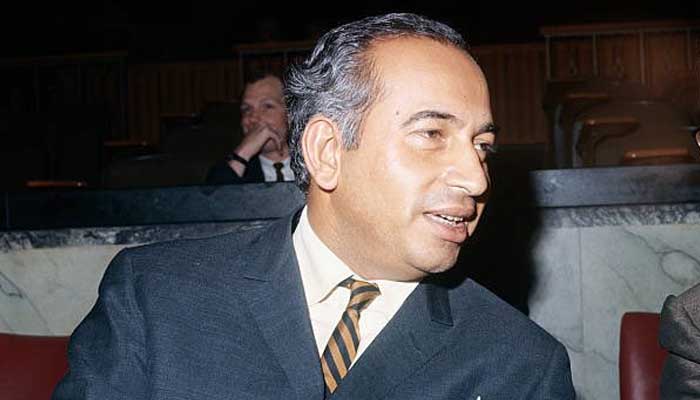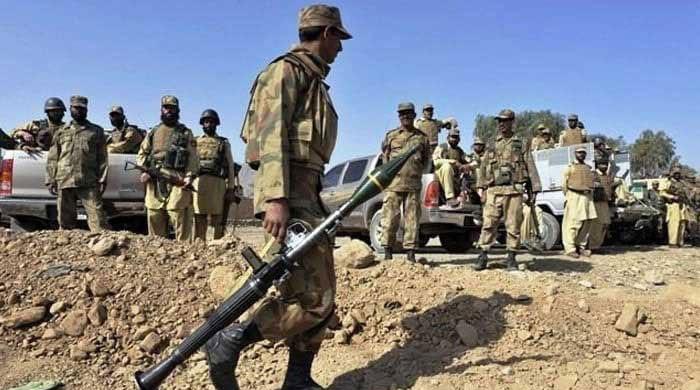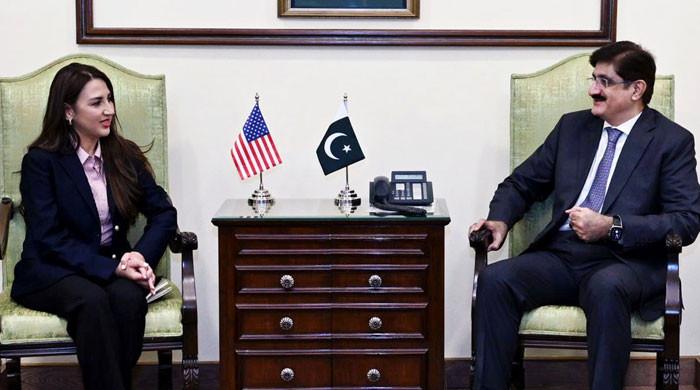Zulfikar Bhutto's legacy endures as PPP marks 46th death anniversary
Bhutto shaped Pakistan’s politics, introduced nuclear programme, faced controversial trial leading to execution
April 04, 2025

KARACHI: The Pakistan Peoples Party (PPP) is commemorating the 46th death anniversary of its founding chairman and former prime minister Zulfikar Ali Bhutto, who was executed on this day in 1979 following a controversial trial.
Bhutto, a charismatic leader on both national and international fronts, played a pivotal role in shaping Pakistan’s political landscape. His legacy was reaffirmed earlier this year when the Supreme Court ruled that his trial had not met constitutional standards for fair proceedings.
In recognition of his contributions, the federal government posthumously awarded him Pakistan’s highest civilian honour, Nishan-e-Pakistan, on March 23, which was received by his daughter Sanam Bhutto.
Born on January 5, 1928, in Larkana, Bhutto studied law at the University of California, Berkeley, and later at Oxford University. He entered politics as foreign minister in General Ayub Khan’s cabinet in 1963, but later parted ways to establish the PPP on November 30, 1967.
His progressive ideology quickly made the PPP one of the country’s most popular political parties.
Bhutto served as Pakistan’s president from 1971 to 1973 before becoming the elected prime minister in 1973, a position he held until 1977. He was instrumental in drafting Pakistan’s first consensus Constitution, laying the foundation for the country’s nuclear programme, and leading efforts to unite Muslim nations against Western imperialism.
However, his tenure ended when former chief of the army staff General Zia-ul-Haq ousted his government in a military coup in 1977. Bhutto was arrested, convicted of conspiring to murder a political opponent, and sentenced to death. On April 4, 1979, he was hanged, a decision widely regarded as politically motivated.
Despite his execution, Bhutto’s ideology and political vision continue to resonate in Pakistan’s politics, with his party remaining a major force in the country.











